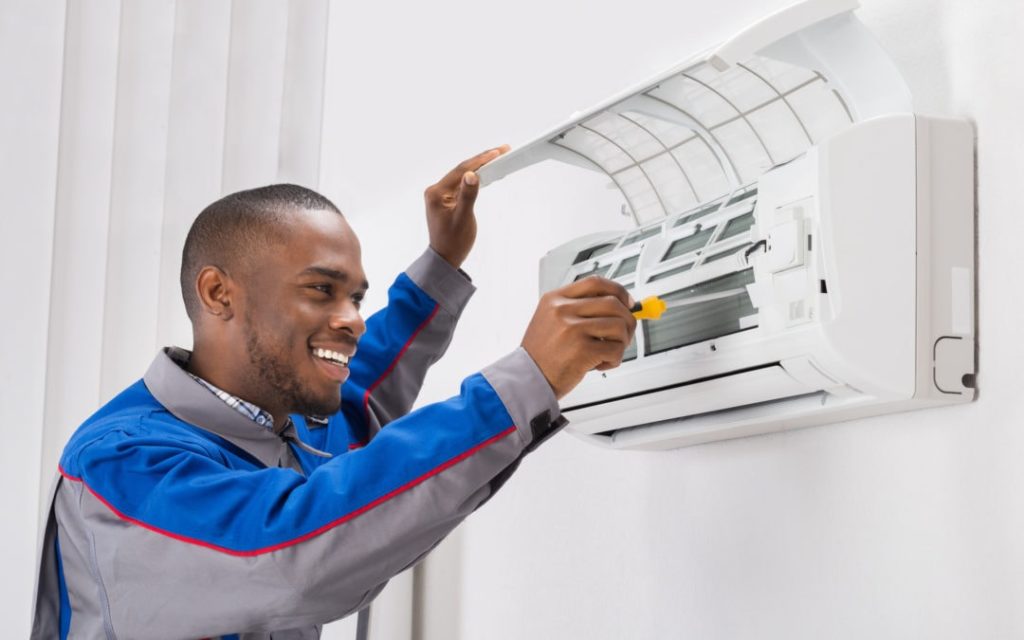With an increasing number of homeowners gradually seek more sustainable and cost-effective solutions for their HVAC needs, geothermal heating and cooling systems have emerged as a strong option. Such advanced systems utilize the earth's natural energy to provide both heating and cooling, offering a unique alternative to conventional HVAC setups. However are they justifiable the investment?
In this article, we will explore the basics of geothermal HVAC systems, exploring how they function and comparing their advantages and disadvantages. We will also address important considerations for homeowners contemplating this technology, as well as practical tips for maximizing efficiency and indoor comfort. If you are new to HVAC concepts or looking to upgrade your existing system, this guide will provide valuable insights into the potential of geothermal energy in your home.
Comprehending Heating, Ventilation, and Air Conditioning Basics
Heating, Ventilation, and Air Conditioning stands for heating, ventilation, as well as cooling systems, which is a system designed to provide comfortable temperatures and acceptable quality of air indoors in home and business establishments. Knowing HVAC is important for property owners and property managers alike, as it involves multiple parts that work in unison to regulate the climate within a space. The heating component aspect typically includes heating units or heat-transfer systems, while cooling is provided by air conditioning systems. The ventilation process is crucial for making sure that clean air circulates, which can also help in controlling humidity and improving the quality of air indoors.
Every part of an HVAC system has a distinct function in keeping a pleasant atmosphere. The heating elements mechanisms, be it gas, electricity, or geothermal, heat the air during colder months. Cooling systems cool the area in the summer months, often utilizing refrigerants to absorb heat from the indoor air. Proper ventilation systems are vital for removing contaminants and ensuring a steady airflow, which contributes to a more beneficial home. Understanding how these elements interact can help homeowners diagnose issues and appreciate their significance.
To fully utilize the HVAC systems, understanding of their operation and upkeep is required. Regular maintenance tasks, such as changing air filters and scheduling regular check-ups, can prevent frequent problems and extend the system's lifespan. Property owners should also be conscious of energy efficiency standards and the potential benefits of upgrading to intelligent systems, resulting in significant savings on utility costs. Familiarity of HVAC basics not only enhances comfort but also encourages a forward-thinking approach to home management.

HVAC Maintenance Essentials
Routine maintenance is vital for keeping your HVAC system functioning optimally and lengthening its lifespan. A well-maintained system not only provides efficient heating and cooling but also minimizes the risk of unexpected breakdowns. Begin with regular inspections to check signs of wear and tear. Replace or clean air filters every 1-3 months, depending on usage patterns and filter type. Clean filters improve airflow and indoor air quality, which can aid in reducing allergies and health issues.
In conjunction with regular filter maintenance, ensure that the outdoor unit is clear of debris and vegetation. This allows for adequate airflow and stops overheating. Scheduling seasonal tune-ups with a trained technician can also catch potential problems that might lead to significant repair costs down the line. During these inspections, technicians typically inspect refrigerant levels, maintain evaporator and condenser coils, and ensure that all power components are operating as intended.
Lastly, be sure to keep an eye on your system's performance throughout the season. Keep an eye on unusual noises or variations in efficiency, and resolve any issues promptly. This preventative approach ensures not only the longevity of your HVAC system but also helps ensure a comfortable indoor environment while maybe lowering your energy bills.
Investigating Geothermal Options
Geo-thermal HVAC systems utilize the stable heat located beneath the Earth's surface to facilitate optimized warming and cooling for houses and enterprise facilities. By employing air conditioning replacement of subsurface pipes, these systems swap heat with the ground, substantially lowering the energy needed for indoor climate control. This renewable energy source not only promotes green practices but also offers sustained cost savings on energy bills, rendering it an alluring alternative for environmentally aware consumers.
One of the primary advantages of geo-thermal systems is their performance. Compared to conventional warming and chilling techniques, geo-thermal systems can be up to four times more efficient, as they shift heat rather than generate it. This effectiveness results to diminished utility costs and a minimized carbon footprint, which is appealing in an era of increasing energy prices and growing awareness of environmental change. Additionally, geothermal systems generally require fewer maintenance than conventional HVAC units, contributing to their continued reliability and performance.
Nonetheless, the upfront investment for geothermal HVAC systems can be substantial, due to the costs linked with installation and the necessary ground loops. Homeowners must weigh the initial expense against potential energy savings and government incentives for sustainable energy systems. Over time, the ROI can render geo-thermal systems worthwhile, particularly for those hoping to remain in their homes for many years. As technology progresses and costs slowly decline, geo-thermal HVAC options will probably become even more practical for a wider audience.
